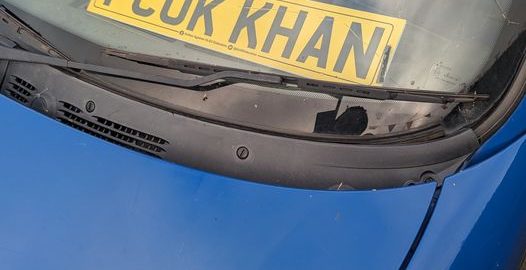29 August 2023 /Transport/ –The Ultra Low Emission Zone (ULEZ) is a low-emission zone in London, England. It was introduced in April 2019 and expanded to cover all London boroughs on August 29, 2023. The ULEZ charges drivers of vehicles that do not meet certain emission standards a daily fee to drive within the zone. The aim of the ULEZ is to reduce air pollution in London.
The ULEZ was first proposed by the Mayor of London, Boris Johnson, in 2015. The proposal was met with some opposition from businesses and motorists, but it was eventually approved by the London Assembly. The ULEZ was implemented in phases, with the first phase covering central London and the second phase covering the rest of the city.
The implementation of the ULEZ has had a number of social and business effects on the wider London community. Some of the positive effects include:
- A reduction in air pollution. Studies have shown that the ULEZ has led to a significant reduction in air pollution in London. This has had a positive impact on the health of Londoners, especially children and people with respiratory problems.
- An increase in the number of electric vehicles. The ULEZ has encouraged people to switch to electric vehicles, which are zero-emission vehicles. This has helped to reduce air pollution even further.
- A boost for the economy. The ULEZ has created jobs in the electric vehicle and green technology sectors. It has also helped to attract investment to London.
Some of the negative effects of the ULEZ include:
- Increased costs for businesses and motorists. Businesses that operate vehicles in the ULEZ have had to pay the daily charge. This has added to their costs. Motorists have also had to pay the daily charge, which has made it more expensive to drive in London.
- Increased congestion in the outer boroughs. The ULEZ has led to some motorists avoiding driving in central London, which has increased congestion in the outer boroughs.
- Concerns about the fairness of the scheme. Some people have argued that the ULEZ is unfair to people who cannot afford to switch to electric vehicles.
Overall, the ULEZ has had a positive impact on air quality in London. However, it has also had some negative effects, such as increased costs for businesses and motorists. It is important to continue to monitor the impact of the ULEZ and make adjustments as needed.
Here are some additional details about the ULEZ:
- The daily charge for driving in the ULEZ is £12.50 for cars, vans and minibuses.
- There are a number of exemptions from the ULEZ charge, including for disabled vehicles, historic vehicles and motorcycles.
- You can check if your vehicle is exempt from the ULEZ charge on the Transport for London website.
- You can pay the ULEZ charge online, by phone or by post.
There is a lot of political fallout over the ULEZ and the Mayor of London, Sadiq Khan, for a number of reasons.
- The ULEZ has been criticized for being unfair to low-income motorists. The daily charge for driving in the ULEZ can be a financial burden for people who cannot afford to switch to electric vehicles.
- The ULEZ has been blamed for increasing congestion in the outer boroughs of London. Some motorists have avoided driving in central London because of the ULEZ charge, which has led to increased traffic in the outer boroughs.
- The ULEZ has been accused of being a political stunt by Khan. Some people believe that Khan introduced the ULEZ to score political points with environmental groups, rather than to actually improve air quality in London.
- The ULEZ has been criticized for being poorly implemented. There have been reports of confusion about the rules of the ULEZ, and some people have been unfairly fined.
Khan has defended the ULEZ, arguing that it is necessary to improve air quality in London. He has also said that the ULEZ is fair, as there are a number of exemptions for low-income motorists.
The political fallout over the ULEZ is likely to continue, as it is a complex issue with no easy answers. It is important to weigh the different perspectives on the ULEZ and to consider the evidence before forming an opinion.
In addition to the reasons mentioned above, there are a few other things that may be contributing to the political fallout over the ULEZ. These include:
- The fact that the ULEZ was introduced by a Labour mayor, Sadiq Khan, while the Conservative Party is currently in power at Westminster. This has led to accusations from some Conservative politicians that the ULEZ is a “tax on motorists” and that it is unfair to businesses.
- The fact that the ULEZ has been implemented at a time when the cost of living is rising. This has made it even more difficult for some people to afford to switch to electric vehicles.
- The fact that there is still some uncertainty about the long-term impact of the ULEZ. Some people are concerned that it could lead to job losses in the transport sector.
It is too early to say what the ultimate impact of the ULEZ will be. However, it is clear that it is a controversial policy that has generated a lot of political debate.

